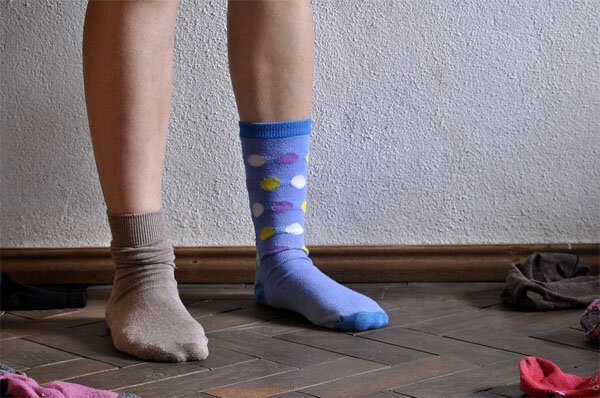5 Important Questions About The World It's Taken Way Too Long To Answer
We’re far enough into human existence now that we generally don’t debate certain things. We accept that the sun is at the center of the solar system, water is made up of two hydrogen molecules and one oxygen, and that french fries are best when loaded with cheese and bacon. It’s just science.
And yet, there are some questions you’d think should have been answered years ago, but definitely were not. For example …
What Can And Can’t We Do With Dead Bodies?
If insurance salespeople and crappy actors portraying insurance people have taught us anything, it’s that you need to plan for your eventual demise, with life insurance and funeral arrangements and all sorts of burdens you don’t want to place on your loved ones. They have other, more important matters to sort out after your fatal mini golf accident, like figuring out what to do with your remains. Because as it turns out, it can vary widely depending on where you live.
For example, a woman in North Carolina got in trouble with police because she didn’t bury her dead mom, and instead opted to keep her in the house to, uh, watch the body decompose. Now, that sounds like pretty standard serial killer stuff that should get you thrown in jail, but as it turns out, there’s nothing illegal in North Carolina about having dead people in your house. Apparently, if she had just told the police she intended to spend the next couple years playing Mario Party with her mom’s corpse, everything probably would have been fine.
OK, maybe “fine” is a bit of a stretch.
And that’s the thing—there’s almost nothing about bodies that’s settled on any sort of national level. When a guy buried his wife in his front yard in Alabama, neighbors complained and he was eventually forced to remove the body (though he did have her cremated and put her ashes back in the grave). Everything looked the same functionally, but it was important they knew there wasn’t an actual body there.
We have laws about what you can do with somebody’s ashes, but those can also vary from state to state, and people will still dump their Uncle Stu’s remains at Disney World or Yankee Stadium anyway. Similarly, there are apparently no laws against selling tickets to see a bunch of dead bodies, in which the actual bodies aren’t so much those of willing volunteers as they are just corpses that nobody has claimed.
All this is to say that we, as a species, haven’t really decided collectively what should be done with our dead people. Culturally and legally, the whole thing is a mess, and when the dead rise, they’re gonna be pissed.
Is There A Ninth Planet In Our Solar System (That’s Not Pluto)?
Growing up, most of were taught there were nine planets, and even though Pluto was a little small and icy for his age, he was still just as much a planet as everybody else. As you know, scientists eventually decided Pluto didn’t qualify because it failed the planet criteria of "clearing the neighborhood” around its orbit. Basically, it’s not the gravitational king of its own space, and kinda just floats alongside other stuff like a nearby asteroid belt.
But, so, whatever—Pluto is gone, but surely science has evolved enough that we can at least be certain of exactly how many planets there are in our solar system. After all, the Hubble telescope can see 13.4 billion light-years from Earth, meaning it can essentially look into the past. Surely we have the tools to completely assess the contents of our own solar system. Or ... you know, not.
I mean, that’s in the right direction, but …
A few years ago, an astronomer named Mike Brown noticed a few weird asteroid-looking things at the edge of the solar system operating in a very weird manner. It seemed like they were revolving around something. Something like a planet, for example. Brown proposed he may have discovered a “Planet Nine” to replace Pluto and pour salt in the poor ice rock’s open wound.
Except, five or so years later, nobody has actually found Planet Nine. It could still exist in theory, but we can’t prove it. The planet’s existence is a matter of serious debate even though- shouldn’t we be able to just point a fancy sciencescope that way and see it? Again, we can observe stars that died millions of years ago, but we can’t figure out if our own solar system does or does not include another planet roughly ten times the size of Earth.
What’s The Actual Mass Of A Kilogram?
If I asked you how much 10 pounds weighs, you’d probably either point to something you think weighs 10 pounds (like, I don’t know, my huge calves), or you’d stare at me blankly, confused by the question. Presumably that’s the same as asking me what the color green is or what number 11 is. They are what they are. A pound, for example, is a scientifically defined amount of force being exerted upon my massive calves by gravity.
Incidentally, there is also a certain amount of scientifically defined AWESOME SOCKS.
And yet before 2018, the exact amount of mass that existed within a kilogram wasn’t quite so exact. For starters, unlike pounds and most other units of measurement, a kilogram was actually based on a real, man-made object sitting in a vault in Paris, aptly named the International Prototype Kilogram. It’s a physical cylinder that was used as a reference point for all other gram-based measurements.
Except here’s the problem with real objects in the real world—they deteriorate over time. Now, that might not be such a big deal when you’re dealing with, say, a desk or McDonald’s decay-resistant and not-slathered-in-glorious-cheese-and-bacon french fries. But when it’s an object requiring scientific precision, any small change could have widespread ramifications.
Firstly, science usually can’t afford to be anything but perfectly precise. When the Hubble Telescope’s mirror was shaved down just two microns too many (one-fifth the thickness of a human hair), the telescope became unusable. Additionally, wealthy elites throughout history have abused subjective measurements to exert control. Feudal lords would fudge measurements all the time with their subjects. For example, payments were often made in bags of grain, but the bags the lords used to pay debts were way smaller than the ones they asked their subjects to fill.
As power moved more to the people and we became more interested in scientific accuracy, most measurements became standardized to a fixed rate separate from some random object. And to be fair, we do have a better answer to this question now. But still, it was an insanely long hold out.
Should China Use Multiple Time Zones?
American time zones were officially adopted back in 1883 to help railroads maintain consistency, and we’ve mostly accepted them as OK. Sure, L.A. Rams fans who are also brunch-enthusiasts struggle to maintain their late breakfast lifestyle with early football games starting at 10 a.m., but in general, it’s fine.
And indeed, the world at large has agreed that the Earth spins on an axis and the sun hits different parts of the world at different times, and so it makes sense to say Brazil clocks should be set a bit differently than Madagascar's.
But not everybody agrees. In a predictable and very Chinese move to create “national unity,” China decided they only need one time zone: Beijing Standard Time. As you may know, China is very big, which means that cities 3,000 miles apart are forced to pretend they’re experiencing the exact same time. Which means in some places, the sun might not set until after midnight. Shops and stores have adjusted to these weird issues with hours being more reflective of when there’s actually light, but it still creates plenty of weird issues—especially for travelers.
Like spontaneous public napping.
Even more strangely, certain pockets of China refuse to acknowledge Bejing Time as much for its inconvenience as a way to essentially rebel against the capital. As in other countries we know, things previously considered apolitical (like what freaking time it is) have become very political and very contentious. Which … will I get called a Communist if I argue against Daylight Savings Time?
And speaking of time …
How The Hell Does Time Actually Work?
From one perspective, it seems time works straightforwardly. At one point there was no time, and then the river of existence began flowing and now we’re kind of along for the ride. The past is real, and definitely happened, but it’s not the same as now, and the future obviously hasn’t happened and is being constantly written. Simple.
Except— man, not only is it not that simple, but there are hundreds of different viewpoints out there. And while the question “How does time work?” might sound like some abstract experiment in thought, it’s actually pretty important when it comes to figuring out how the universe works, and scientists are nowhere near a consensus.
One popular theory is what some call the block universe theory. The idea is that unlike the flowing river analogy where new time is constantly being created, the block universe supposes that all of time exists simultaneously. All future, all present, all past exist equally and are unchangeable. The only thing that changes is which slice of time we’re actively observing.
And which already-obsolete timekeeping device we’re observing it with.
Another way to look at it is comparing time to space. Is Cambodia any less real than Texas, even if you happen to be eating at a Houston diner? No, of course not. You’re simply observing your mountain of bacon cheese fries in the moment, and so they may feel like the most real thing in the universe, but it’d be insane to say Cambodia doesn’t exist just because you’re not currently there. In this analogy, Cambodia is the future (or past) while Texas is the present.
But there are still others who believe this to be ridiculous, and that the future can’t possibly already exist. One theory that explains this points to how the universe becomes increasingly complex as we progress through time. That is, the second law of thermodynamics suggests the universe naturally wants to become more complex. So, if we apply that law to time, then at the Big Bang, time was very simple because there wasn’t much of it, but the longer we exist the larger and more complex time becomes. That is, the past is simple, while the present is complex, and the future will be even more complicated. Kind of like this explanation as I keep going with it, yes?
The point is, those are just two of hundreds of theories. Honestly, nobody’s quite sure whether we should compare time to space or to thermodynamics or if it’s even real at all. So if you were hoping at least somebody knew how time and existence worked … I don’t know, maybe just watch 12 Monkeys again.
Jordan Breeding is the creator, writer, and host of Cracked’s new YouTube series “Your Brain On Cracked.”










